Today, we’re taking a look at an array of the best winter work gloves. We’ll break up our product reviews according to their use-case, since there’s no such thing as a single glove that can do it all.
View in gallery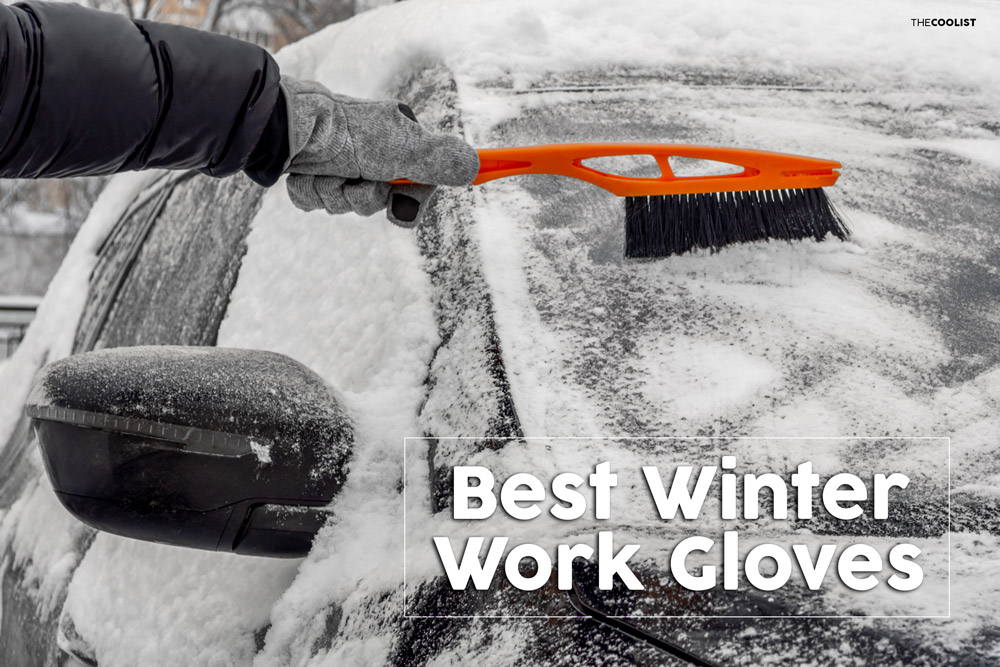
Trying to finish a job or accomplish basic tasks when the temperature drops is a whole new challenge. Reduced efficiency in the fingers, poorer mobility in your joints, and the fact that every mistake is 250 times more painful in the cold are all on the menu.
Thus, getting a set of gloves that can give you protection, warmth, and still provide you with enough dexterity to grip a troublesome nailhead or bolt is imperative.
Whether doing light construction, scraping off the frosted windows, turning a wrench on your old beater, setting up camp, or taking down the holiday lights you left up for three months too long, you need work gloves that can get the job done.
Here are the types of winter work gloves we’re covering below:
- Leather Winter Work Gloves
- Freezer Work Gloves
- Waterproof Winter Work Gloves
- Winter Work Mittens
- High Dexterity Work Gloves
- Liner Gloves
Important: Think of Winter Work Gloves as Tools for Specific Tasks
Before we get into our product reviews, here’s an important disclaimer that could make the difference between life and death on the job:
There is NO SUCH THING as a single pair of best winter work gloves. Full stop.
This isn’t us trying to upsell you on multiple pairs, it’s just a fact of life any working stiff has probably learned the hard way and can vouch for.
We’re updating this article because your comments have come in dropping some truth–and we’re listening. The goal of this list has never been to offer a definitive ranking, implying that item #1 is the absolute best for every situation.
Instead, consider your specific needs. Is dexterity your primary consideration for handling nuts and bolts? Or, do you need the ultimate thermal protection for working in a freezer or shoveling snow? Maybe you need a little more grip for securing your axe swing or chainsaw cut?
If you don’t have a handle on this already, towards the bottom of the page after the product reviews, we’ll have a complete buyer’s guide to help you out. For now, pay close attention to which use-case our gloves are best suited for.
Don’t let fashion or price be the ultimate arbiters of what you choose. The right features will keep your hands safe and hard at work–the wrong ones can do some serious harm.
Best Leather Winter Work Gloves for General Duty
We don’t need to tell you that leather is a versatile material. Because there are so many types of animal hides and grain qualities to choose from, you can easily find a pair of winter work gloves with just the right properties for the task at hand.
That said, a good pair of leather work gloves is the classic jack of all trades. Don’t rely on them for ultimate dexterity or protection from sub-zero temperatures, of course. But these are all affordable and useful enough to have a few pairs ready for a wide variety of winter tasks.
1. Wells Lamont HydraHyde Insulated Winter Work Gloves (Cowhide)
If you don’t mind buying from overseas, Wells Lamont offers undeniable bang for buck. For a modest investment, these HydraHyde cowhide gloves net you decent water resistance, outstanding puncture and abrasion protection, and all-day comfort. These are no wilting violets, either, with a reinforced leather palm patch standing up to a hard day’s work.
In terms of warmth (that is why you’re here, right?) Wells Lamont packs in 100g of Thinsulate low-profile insulation, and includes an elastic knit wrist. Overall, these are the archetypal winter work glove, and well worth your consideration for general tasks.
2. OZERO Winter Work Gloves (Suede)
Another solid option for leather work gloves comes from OZERO. While the defining characteristic of this pair is that they’re affordable, don’t think they’re not worth your attention.
For one, they feature a full complement of imitation lambswool lining which staves off subzero temperatures as cold as -20°F. This material is also quite breathable, wicking away the sweat that can easily build up after sustained physical exertion.
We rate this as a great pair of winter work gloves for shoveling snow or chopping wood, as the raw suede offers plenty of grip without stiffening up. They won’t last forever, but at this price point, you’ll probably have extras laying around.
3. Kinco 1927KW Lined Premium Grain (Pigskin)
An oldie but a goodie, the Kinco 1927KW is a timeless classic for a reason. Often emulated, the warmth, flex, longevity, and easy fit make these a must grab. That’s pigskin, not standard leather, meaning more water fighting power, and it’s backed by the same thermal lining favored by snowboarders for holding warmth while providing range of motion. Don’t let the price put you off: they’re incredible, and usually all you need.
4. Kinco 94HK-L-1 Premium Grain & Suede (Pigskin)
Kincos are the industry standard when it comes to winter work gloves. Basic, grained pigskin with warmth backing seems like a simple enough recipe, but these do it so well that it reinvents the glove. Built strong enough to last, yet cheap enough to discard, everyone should have these, just in case.
Best Freezer Work Gloves
Cold working conditions aren’t limited to outdoor work; there’s plenty of jobs that have you working in a freezer–or perhaps a warehouse with crappy heating that feels like a freezer.
Whatever the case, freezer work gloves offer superior thermal protection suited to subzero applications. They usually also offer decent dexterity for handling cargo or operating machinery. Many will offer waterproofing, but this isn’t always the case.
5. G & F Products Waterproof Winter Work Gloves
If you’re in need of uncompromising warmth and dryness, seek ye out a pair of winter work gloves from G & F Products. Featuring a 15-gauge nylon shell and 7-gauge acrylic terry lining, exterior moisture and wind stand exactly zero chance of penetrating through to your hands.
Additionally, G & F’s one-two punch of HPT and microfoam insulating double coatings keep you warm even in -58°F temperatures. It’s so effective, you can easily get away with leaving your glove liners at home. This also means dexterity enough for lifting, driving, shoveling, and other moderate to low precision tasks.
Need more? These gloves are up to code with ANSI abrasion 3, cut A3, and puncture 2 ratings.
6. Superior Fleece Lined Winter Work Gloves
Superior Gloves also offers an affordable 15-gauge nylon shelled freezer glove. These are lined with fleece, which are awesome for comfort and warmth, but downgrade from waterproof to water resistant.
Where the Superior winter work gloves shine, however, is in their crinkle-grip PVC palms. These offer superior grippiness and remain flexible even in the coldest environments. So in short, if you need a little less protection from the elements but more dexterity, these are the freezer gloves to consider.
In terms of physical protection, you’ll also find ANSI abrasion 3, cut A3, and puncture 2 ratings here. To maximize utility and safety, Superior offers these in a full range of sizes–a welcome change from the frustrating trend of work glove manufacturers offering medium or large and leaving it at that.
Best Waterproof Winter Work Gloves
While we’ve already covered several winter work gloves which feature waterproofing or water resistance, here are a few more that are purpose-built to banish moisture.
7. Ergodyne ProFlex 817WP Waterproof Work Gloves
Ergodyne hit a home run with their ProFlex 817WP. These midweight winter work gloves offer decent dexterity without asking you to compromise on thermal protection.
That’s because of their novel dual-zone insulation, which packs 70 grams of Thinsulate material on the back of the hand, paired with a more dextrous 40 grams in the palm. Essentially, they put the armor where it is most needed, while minimizing it where it gets in the way. Testing says the system’s good for 25°F in medium activity, and -22°F in high activity, but we’d err towards the higher end of that range.
Made of rugged ripstop neoprene and a DWR water-repellent finish, the ProFlex 817WP features true waterproofing as well as windproofing. However, you may find the sizing runs large, which can undermine the otherwise sterling waterproofing properties.
Ergodyne advertises touch sensitivity for using your phone, and materially that is true. However, these are not high-precision winter work gloves, so you’ll find texting as much of a chore as fine mechanical work.
8. Carhartt Men’s A511 Waterproof Insulated Glove
We’re going to level with you here, these legendary winter work gloves aren’t quite what they used to be. That’s because quality control at Carhartt has slipped in recent years, so it’s not inconceivable that you might seek a return on these in short order.
So why mention them at all? Simply put, if you don’t get a lemon, the A511’s are truly excellent waterproof winter work gloves that live up to their long-standing reputation. Folks have been buying these for years for good reason, not least of which is the rugged, waterproof Polytex shell and reinforced PU palm that stands up to serious abuse.
We also like the breathable lining that does a good job wicking moisture thanks to Carhartt’s FastDry technology. It’s also mechanically assisted by a smartly designed fleece cuff and wrist strap, closing off the most vulnerable point of entry for moisture.
Best Winter Work Mittens
Would our list of the best winter work gloves be complete without mention of mittens? We think not.
Here, we cover three types of work mittens, each suited to a different task. Make sure you keep your use-case in mind when making a selection, because the wrong kind of mitten can really get in the way.
Related Reading: Best Down Jackets
Otherwise, mittens are ideal for fighting the cold, as they offer less surface area through which heat can escape. They also work especially well when paired with liner gloves, allowing you to keep warm in the bitterest of working conditions.
9. RefrigiWear Fleece-Lined Fiberfill-Insulated Leather Mittens
These work mittens from RefrigiWear won’t win you any points for style, but they’re damn tough and warm to boot.
Made from split cowhide leather, RefrigiWear beefed up construction with reinforcement along the palm and thumb, threaded by a Kevlar double stitch.
Inside, they’re stuffed full of 160g Fiberfill and foam insulation. The Tricot fleece lining is at once warm, moisture-wicking, and comfy on the hand. It all adds up to reliable protection vs -20°F temperatures, even during sweaty tasks like swinging an axe or shoveling snow.
10. Hot Shot Men’s Camo Huntsman Pop-Top Mittens
The problem with trigger-finger mittens is that they necessarily sacrifice some warmth for dexterity. However, Hot Shot has bypassed this issue with a smart pop-top design.
When your mark comes into sight, simply retract the mitten to reveal your deadly digits and take your shot. We also like that you can easily secure the mitten back with silent magnetic closures that won’t scare the game away.
The Huntsman mittens feature 80 grams of Thinsulate material and Tricot lining for superior warmth. If that’s not enough, you can unzip the heater pack pocket and slip in chemical hand warmers as needed.
11. Carhartt Men’s TS Flip It
Carhartt might have the market cornered when it comes to overalls and work coats, but they’re only part of the glove game. You won’t go wrong with any of their work glove options, but we like the choice of switching from fingerless to mitten mode that the Flip It provides.
These go from gripping and ripping to just plain gripping and holding with ease, then bring the warmth when it counts. Just be aware that when you retract the mitten, the gloves beneath are fingerless. Make sure that this is an advantage for your use-case, rather than a liability.
Best High Dexterity Work Gloves
Sadly, not everyone working in the cold has the luxury of wearing bulky winter gear. Mechanics, machinists, plumbers, and many others know how it is.
See Also: Best Space Heaters for Your Workshop
But fortunately, it’s still quite possible to find warm winter work gloves that don’t demand too great a sacrifice to dexterity. The trick is to not only keep the cold out, but also keep your hands clean and dry within.
12. Mechanix Wear Original Insulated
When Mechanix says “Original” it’s like when Buck knives says it; it doesn’t mean old, it means tried, tested, and true. Fleece all around with seamless palms, these are a warm, soft upgrade from the Fleece Utility choice that will go far more than three times longer than their marginally cheaper cousins.
13. Mechanix Wear Wind Resistant Winter Touchscreen Gloves
Mechanix managed to make simple work gloves an artform, and thus have multiple appearances on this list. As one of their most basic winter option, those on a serious budget who still long for rubber grips, a soft feel, and easy on/off action should begin their Mechanix love affair here.
14. CLC Custom Leathercraft 125 Handyman Work Gloves
Once upon a time, this would have been our top recommendation for high dexterity work gloves. But a redesign (and poor quality control to back it) has seen more customer complaints arise to dog the CLC 125.
The main problem is that the stitching along the fingers tends to wear out. But, if you’re lucky and don’t get a lemon, they’re great gloves that do a good job of keeping fingers warm.
Certainly, the design is meant for mechanics and other precision jobs on paper. But in practice, durability leaves something to be desired. Good concept, inconsistent execution. We include it on our list because it’s still a hot seller–so consider this a PSA.
15. Outdoor Research Men’s Flurry Sensor Gloves
A dandy set of hand-holders that look good anywhere, the Flurry Gloves bear a simple loop for being hung on a belt, along with lots of moisture wicking properties and the ability to dry fast.
Minor texture spots provide enough grip for a basic hammer swing or wrench turn, though these won’t be up to building that winter deck you’ve been dreaming about. Excellent for camp chores and nippy days when anything more would be too much.
Best Liner Gloves
Anyone who deals with biting cold understands the concept of layering. And guess what? It applies equally well to winter work gloves.
Good liner gloves need to both boost warmth without reducing mobility an excessive amount. The secret here is using the right materials and/or weaves. Run-of-the-mill lightweight gloves will lack insulating properties, and may actually make your hands colder by failing to manage moisture from sweat.
16. Terramar Thermasilk Glove Liner
Think silk is too dainty for heavy duty work? On its own, you might be right; but as a glove liner, you’ll be hard-pressed to find something better than Terramar’s Thermasilk gloves.
Despite the very apparent lack of bulk, silk is an excellent insulator. What’s more, the smooth texture makes it easy to slip larger work gloves on and off–a frequent complaint for those wearing liner gloves.
But that’s not the only reason to consider Terramar–these liner gloves feature EC2 Quick-Dri Thermoregulation Comfort Technology. Yes it’s a mouthful, but the end result is a glove that deftly controls moisture from sweat and beats back microbial growth to keep your hands healthy and dry.
17. Icebreaker Merino 200 Oasis Liner Gloves
Merino wool is all kinds of awesome when it comes to thermal and moisture-wicking properties. And since Icebreaker is a leading name in merino products, it’s unsurprising that they produce one of the best liner gloves out there.
Just keep in mind that merino wool doesn’t have the durability of polyester or nylon. Thus, we recommend you pair these with roomier gloves or mittens, rather than tighter-fitting work gloves. This is because the extra room will make it easier to take them on and off without excessive rubbing against the merino.
Durability issues aside, there’s no better material for keeping warm and dry.
18. GliderGloves Copper Infused Touch Screen Gloves
Not every job requires tough leather, pigskin, and miles of insulation. The modest GliderGloves make a decent liner for a larger piece, and are at the top of the heap when it comes to operating a touchscreen.
They aren’t going to survive much abuse by themselves, but their intense degree of facility when used alone, their capacity to seamlessly work high-tech gadgets without exposing your skin, and their overall low-profile fit and feel make these ideal for ordinary wear, small tasks, or wearing as a liner to a beefier mitten.
Previous Recommendations for Winter Work Gloves
Every product has its lifecycle on the marketplace. Maybe they’ve come and gone out of production, or they get one-upped by newer models with breakthrough designs and materials. Perhaps there’s a similar product with a better price point.
Check Out: Best Tactical Gloves
In any case, these are the winter work gloves that we previously recommended, but have moved on from. We’re keeping them up here for posterity. If you see them on the shelves somewhere, they’re still good gloves and might be worth your while.
19. Ironclad Ranchworx Work Gloves RWG2
Ironclad is a hit or miss brand, so while we can’t vouch for everything in their lineup, we can say with great authority that their Ranchworx are worthy of mention.
Much of the leather is rough bullwhip, making it harder than boot camp and backed up by exo-guard construction that adds safety without inhibiting finger motion. Kevlar reinforcement should tell you all you need to know about survivability, and the terry cloth wipe on the back of the thumb should sing a song of smart design.
Just keep in mind, these aren’t really meant for subzero weather. If you live in a climate with more mild winters, though, they’ll get the job done.
20. GEMPLER’S Waterproof Insulated Pigskin Leather Work Gloves
Since leather is nearly impossible to water and weatherproof, Gempler went with pigskin instead, which also adds in flex where it counts for less stiffness and more movement before you even break them in.
Three layers of waterproofing and weather-resistance might not allow you to feel every texture, but will keep hard-working hands warm and mostly dexterous while you while away the hours.
21. Schaefer Ragg Wool Fingerless Ranchhands
Woodworkers who have shops or garages will find these most to their liking. Comfortable for long wear despite the itchy appearance, and giving your fingers the freedom they need without allowing drafts to drift in, framers and anyone who needs their fingerprints out and proud while they toil will be hard-pressed to find complaint here.
22. Wells Lamont Synthetic Leather Work Gloves
60-gram thinsulate begins the story of these working champions from Wells Lamont, as fleece lining provides comfort.
Built with dexterity at the forefront, these won’t give you supreme heat should you be going into sub-zero temperatures with wind chills, but will stand up to your average cold and wet without wearing down or slipping up.
23. Mechanix Wear Polar Pro Winter Gloves
Waterproof and built with a full-blown knuckle guard, cold weather is just the start of what the Polar Pro wants to save you from.
Made for those who are out in the extreme conditions with tool in hand should have a set of these on. They are just as deft as most Mechanix gloves, but for the warmth and safety they provide, they’re given all the pliability you could hope for.
24. HexArmor GGT5 Series 4021X High Vis Work Gloves
Ugly as sin for super high visibility, the HexArmor GGT5 Series 4021X High Vis Work Gloves do it all. Impact fighting plates, cut resistance on the palm, Thinsulate lining, wicked waterproofing, and lots of clever finesse make these a go-to choice for those who don’t mind the price.
Winter Work Gloves Buyer’s Guide
Now that you’ve seen a good cross section of the market for cold weather work gloves, it helps to consider your priorities for deciding which to buy. Here are some factors to keep in mind:
Safety Ratings
Wondering whether or not your safety gloves will actually keep your hands safe? Don’t leave it up to guesswork, look for ANSI ratings.
As the name might imply, the American National Standards Institute regulates and codifies minimum safety ratings for all kinds of products, from boots to goggles to gloves and more besides. There is an entire nomenclature for various safety parameters, but only a few are relevant when it comes to gloves:
- Cut – ANSI A1-A9 – Describes the various levels of cut resistance, measured in grams of force. For reference, many our recommended winter work gloves lie in the ANSI A3 range, which resists up to 1499 grams of force. In practical terms, you’re good doing anything short of tasks like metal fabrication. Gloves up to A5 are commonly available in this use-case.
- Abrasion – ANSI 0-6 – Describes a glove’s ability to withstand material wear and rubbing. Each level specifies how many abrasion cycles at a specific load a material can withstand before wearing down. Our recommended warm work gloves tend to carry an ANSI level 3 rating, which implies a fair amount of durability in regular working situations. It’s not unobtanium, but it’s not paper-thin either.
- Puncture – ANSI 0-5 – Describes the ability of a material to repel penetrative force, measured in Newtons. Most winter work gloves will feature ANSI 2 or ANSI 3 levels, which are equivalent to light construction work, parts assembly, and light glass handling.
While there are other important factors for safety gloves such as heat resistance and chemical degradation, typically these don’t factor into jobs which require cold weather work gloves. There are exceptions, of course.
Materials for Winter Work Gloves
Generally speaking, you can break up the materials used to construct cold weather work gloves into two categories: synthetic and organic.
Synthetic
Here are some of the most common synthetic materials and their properties:
- Nylon – Flexible, elastic lightweight, yet durable. Often bonded to cut-resistant materials. Lint free. Easy to coat in polyurethane or nitrile for extra grip.
- Acrylic – A common material used in thermal gloves, as it does a good job trapping air for use as an insulator. You’ll mostly find it as a lining, but it can comprise the entire glove in lightweight applications.
- Neoprene – The same stuff you find in wetsuits. Tons of flexibility, great water resistance, but tends to trap moisture in as well. Can get very stinky when used in sweaty work applications, like shoveling snow.
- PVC – Not just for pipes. Highly durable and great against a variety of chemical degradation. An effective material for waterproof gloves.
- Polyester – Affordable, offering good cut and abrasion resistance. A poor conductor of heat, which makes it a good choice for insulated work gloves. The downside is it isn’t particularly breathable. Its properties can change significantly when blended with other materials.
Organic
No, we’re not talking about overpriced vegetables, but materials which occur naturally. Here are the most common:
- Cotton – Ubiquitous in clothing due to its comfort and ability to take dye. It’s pretty durable as well. Like polyester, which it is often blended with, it does a poor job wicking moisture, which is often a no-go for winter work gloves.
- Wool – There are lots of types of wool, but merino is the most desirable for its thermal properties and comfort. Naturally anti-microbial and moisture-wicking, it’s a good choice for glove liners. Unfortunately, it’s not so durable on its own, but this can be mitigated by blending it with synthetics like nylon.
- Silk – Less common in heavy duty winter work gloves, but an excellent choice for glove liners. Comfortable, moisture wicking, and temperature regulating. The big downside is that it catches easily on velcro, which can cause abrasion damage to accumulate rapidly.
- Leather – A catch-all term for animal hide. The most common types are:
- Cowhide: Affordable, warm, durable, with excellent abrasion resistance.
- Pigskin: Breathable. Remains supple even with sustained exposure to moisture.
- Deerskin: Even warmer than cowhide and more flexible. Soft and comfortable, yet hard-wearing.
- Goatskin: A solid choice for high dexterity applications. Durable yet highly supple.
Palm Coatings
Another important factor that determines the performance of your winter work gloves is their palm coatings. After all, this is where the proverbial rubber meets the road. Here are the most common types of coatings:
- PVC – Vinyl is watertight, and thus makes a good palm coating for winter work gloves.
- PU – Polyurethane is damn tough, but lacks flexibility. Good for low-dexterity work.
- Nitrile – Highly flexible synthetic elastomer that resists oil and many chemicals.
- Latex – Natural rubber that provides superior grip.
Mittens vs. Gloves
With all other factors being equal, mittens will provide better insulation and warmth than gloves. However, they are far worse for dexterity, since you lack the ability to articulate individual fingers.
There are exceptions, of course. For example, some mittens have trigger fingers which are favored by hunters and users of power tools alike. Other designs may allow you to retract the mitten to reveal fingers beneath, though this usually entails thermal compromises.
A distinct advantage of gloves over mittens is dexterity and ergonomics. Having ready access to all of your fingers allows you to form a more secure grip on axe handles, chainsaws, engine components, gunstocks, and more.
Gloves tend to be more form fitting than mittens–but this can make layering with glove liners more of a challenge.
Generally speaking, go for mittens for doing low-dexterity work and maximizing warmth in survival situations. Otherwise, gloves offer a more versatile array of options.
Related Reading: Best Touch Screen Gloves
Best Winter Work Gloves: Conclusion
At this point, you should have a good idea of what’s out there in terms of cold weather work gloves and mittens. We’ve reviewed the best of the most commonly available models out there–and warned against a few hot sellers that might not be so hot.
By keeping the points in our buyer’s guide in mind, you should be able to pick the right tools for the task, thereby keeping your hands safe and warm while working hard.
Once again, though, don’t try to make a single pair of gloves do everything. What works for fine dexterity probably won’t withstand prolonged exposure to subzero temperatures, and visa versa. Good insulation doesn’t mean waterproof, and waterproof doesn’t mean moisture wicking. The point is, there are lots of little factors that go into making a glove the right glove for your use-case, so consider them all carefully together.
We take your comments to heart. Got any advice for picking the best winter work gloves, or got a brand that you swear by? Sound off below–we’re always happy to hear your feedback.
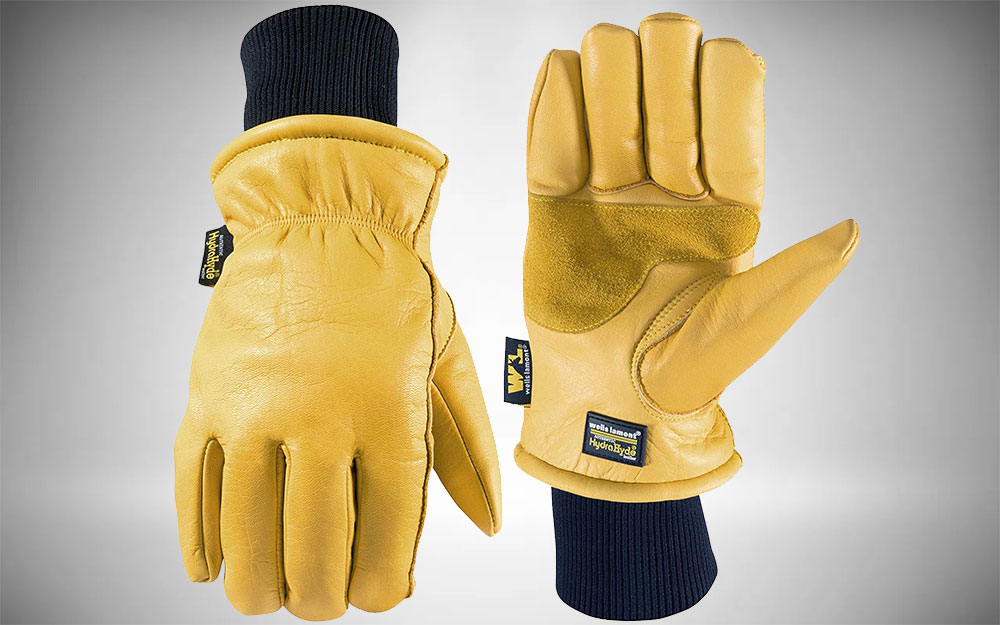
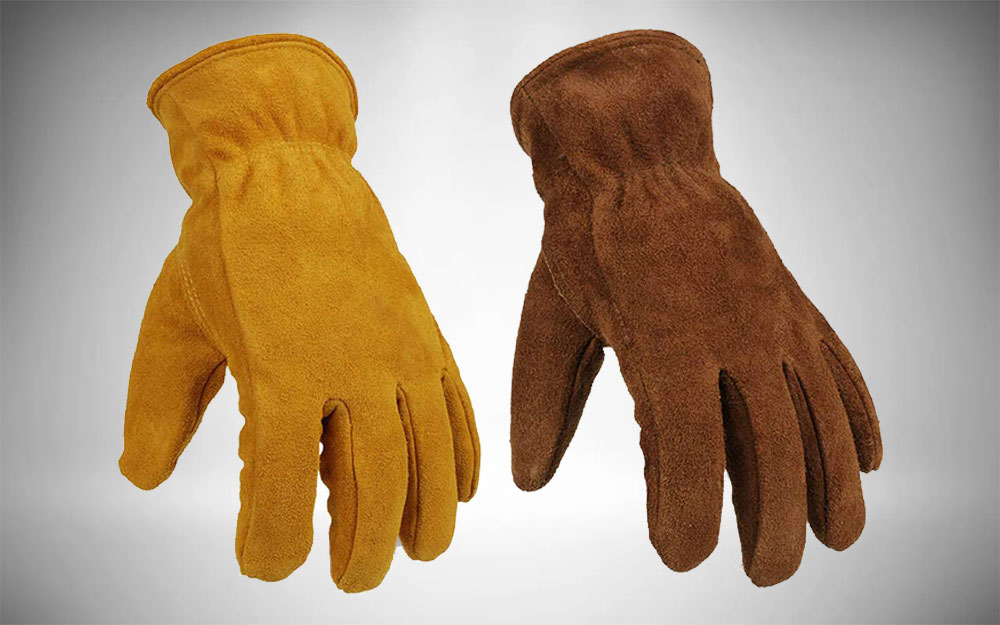
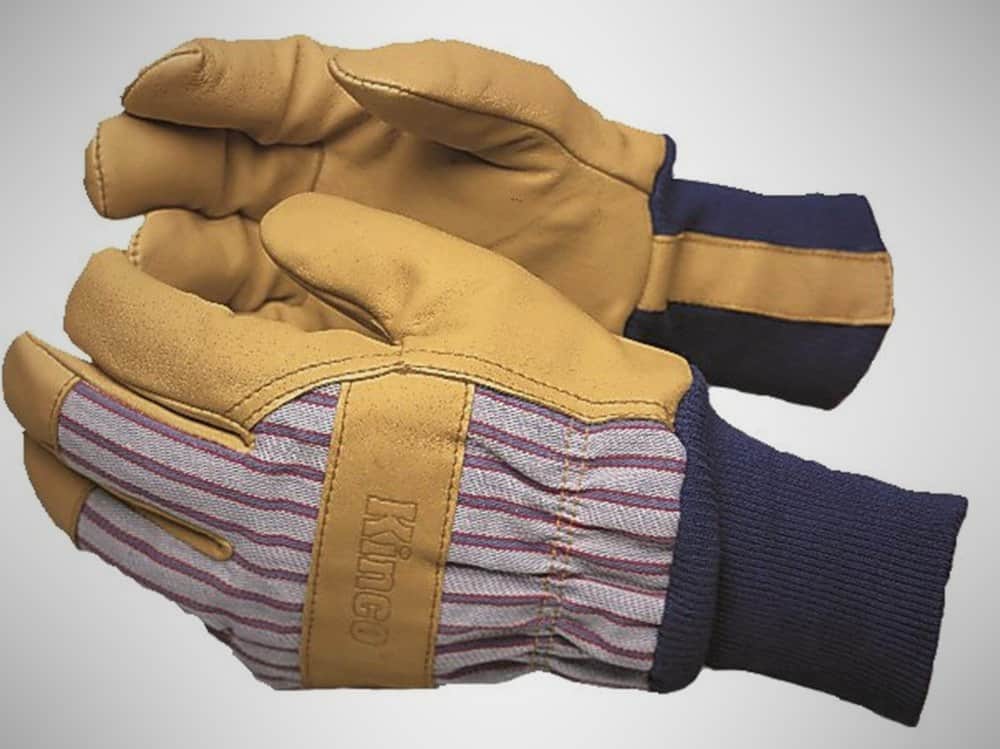
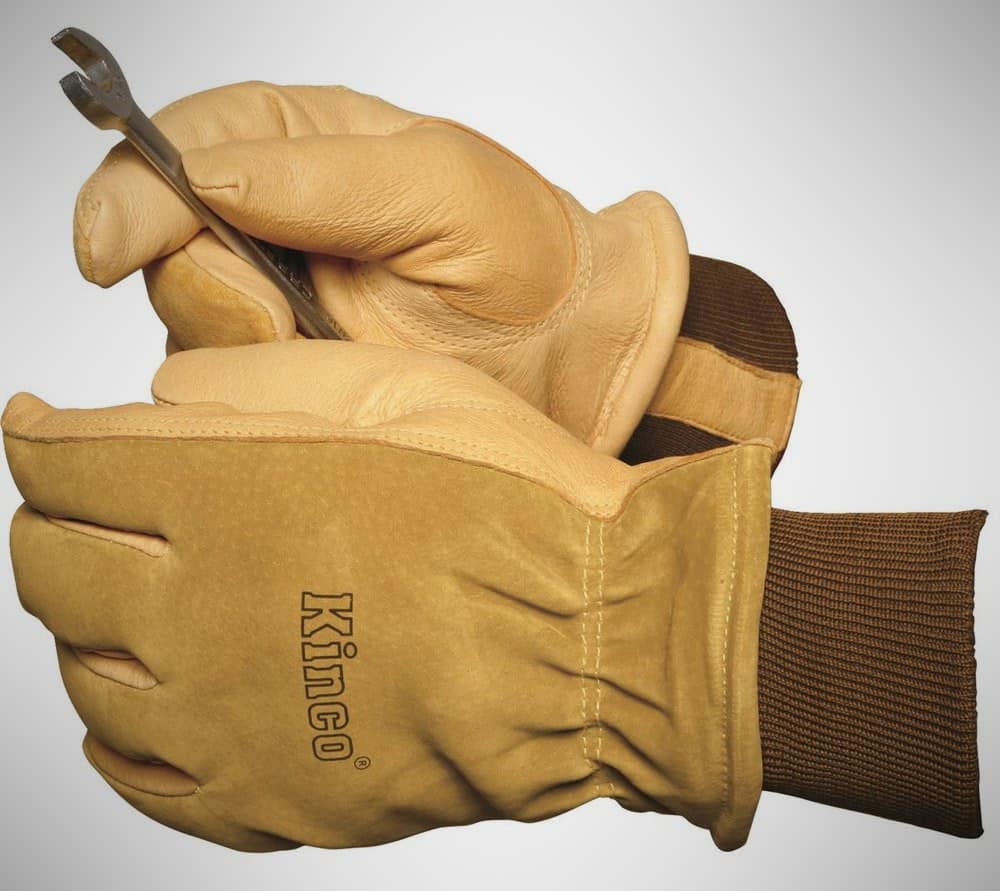
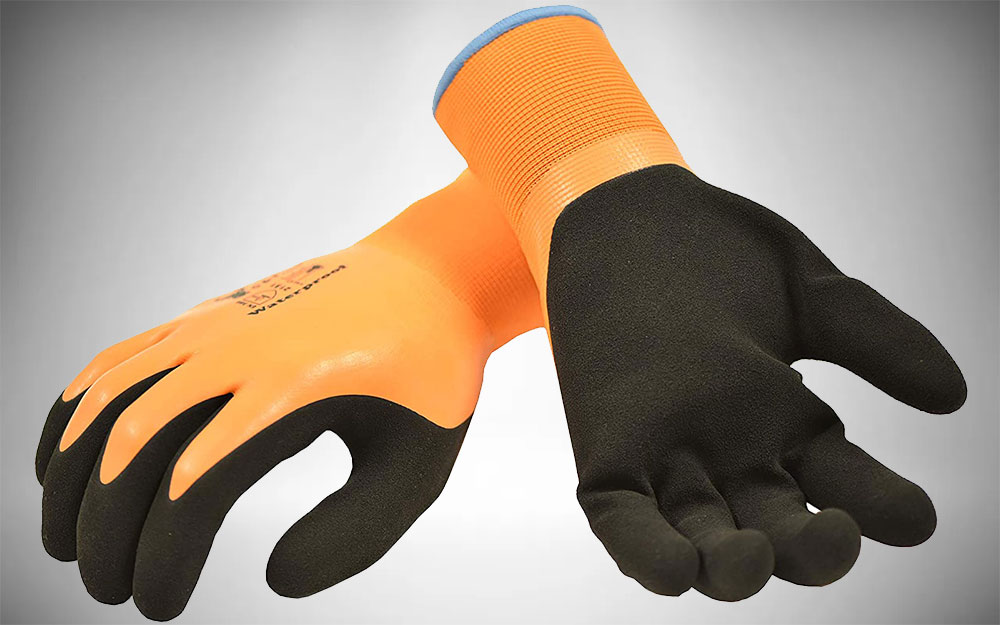
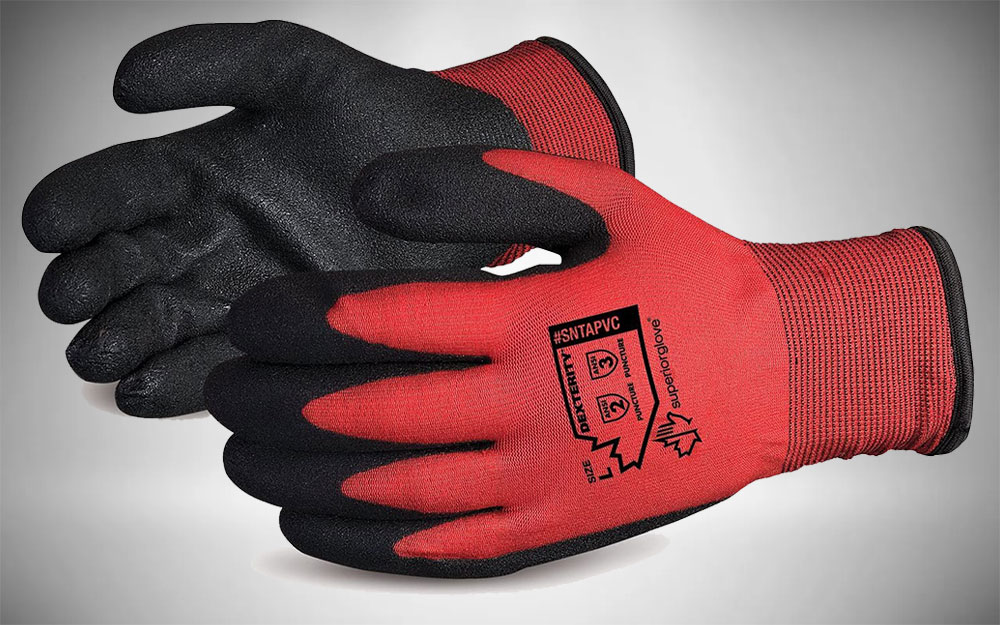
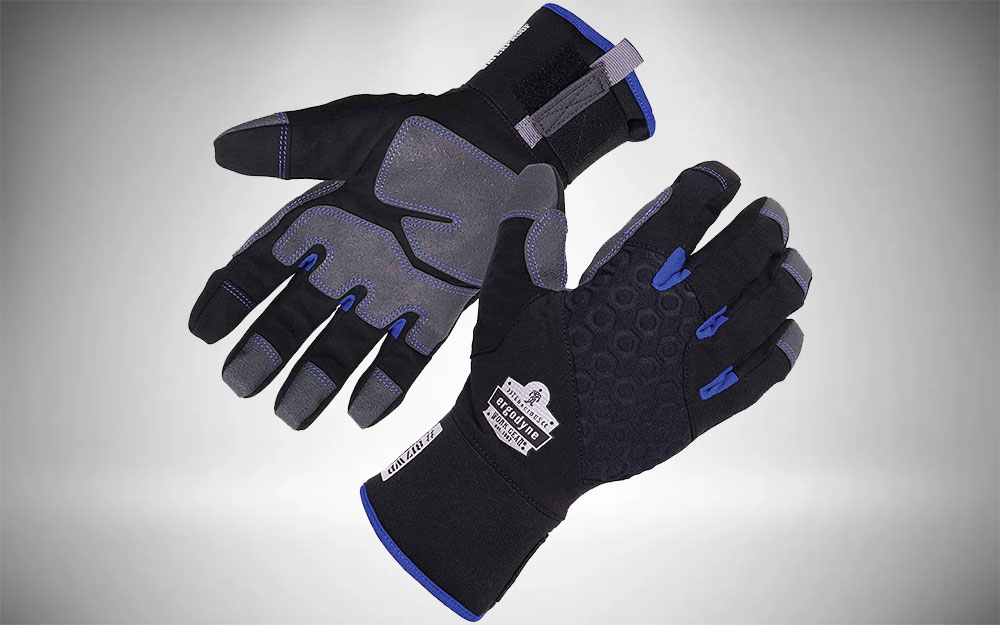
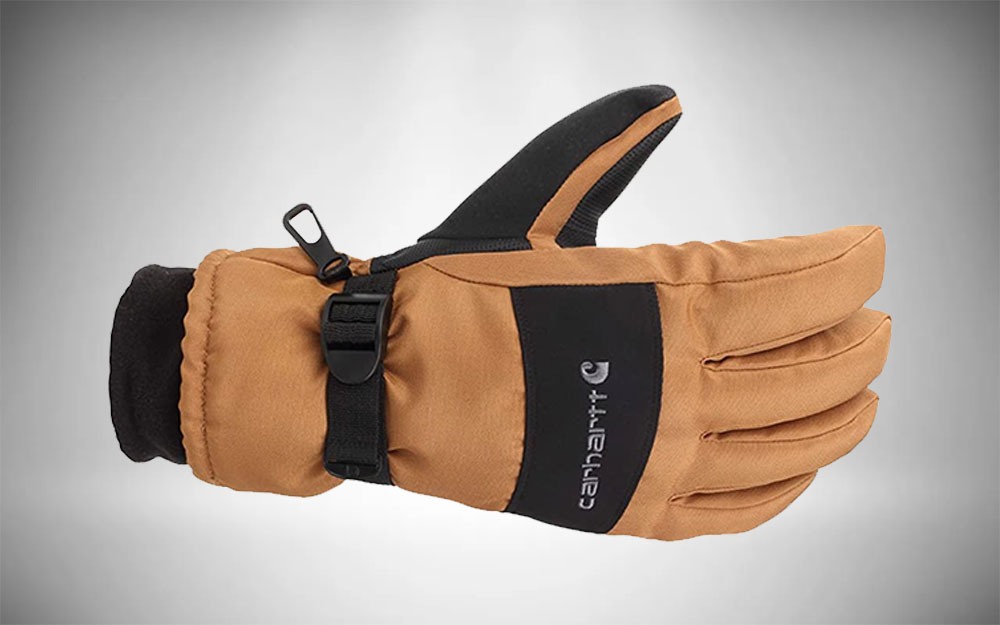
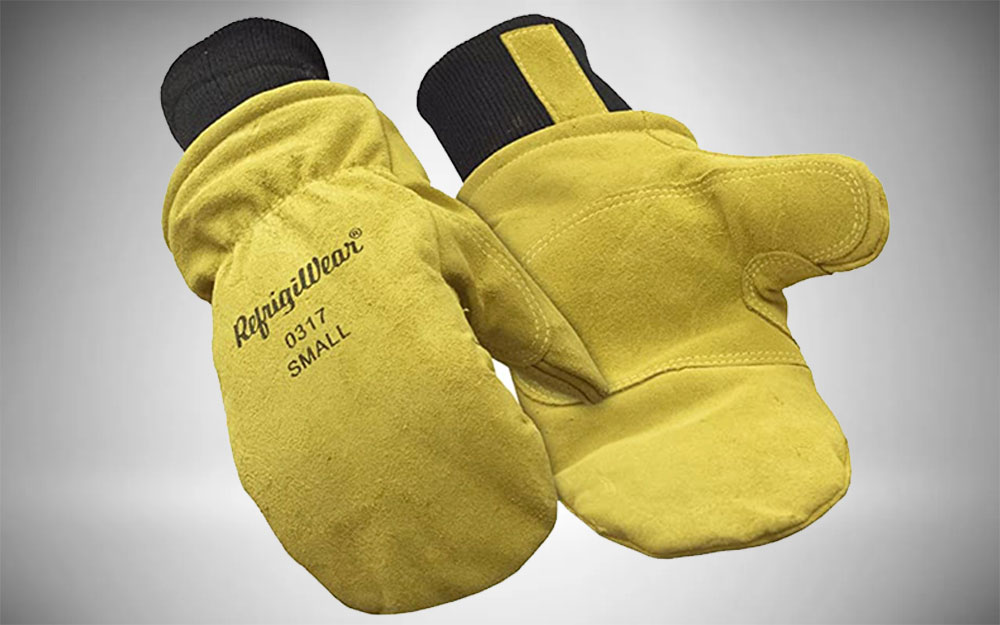
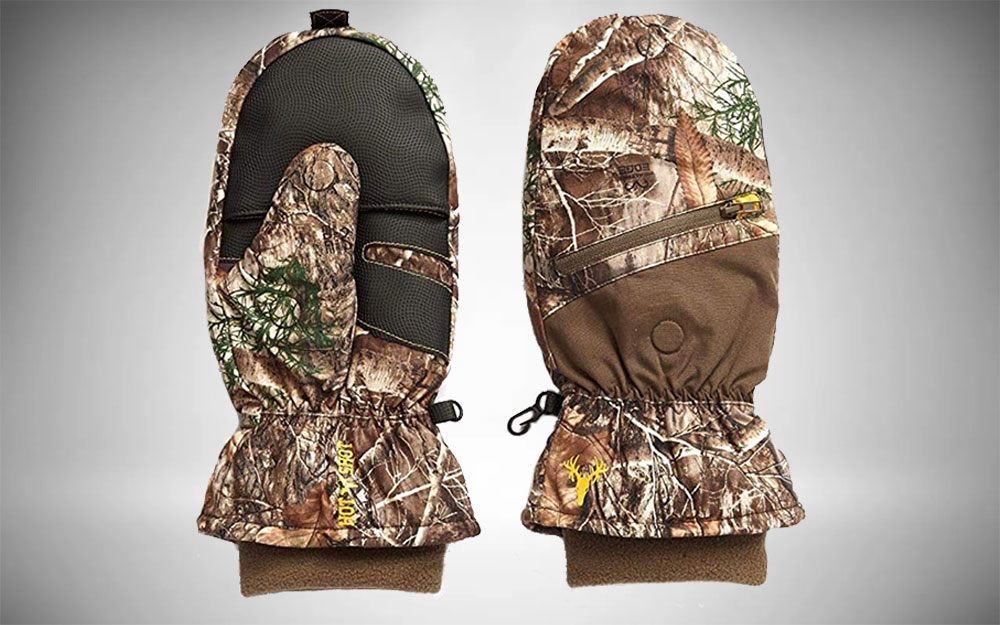
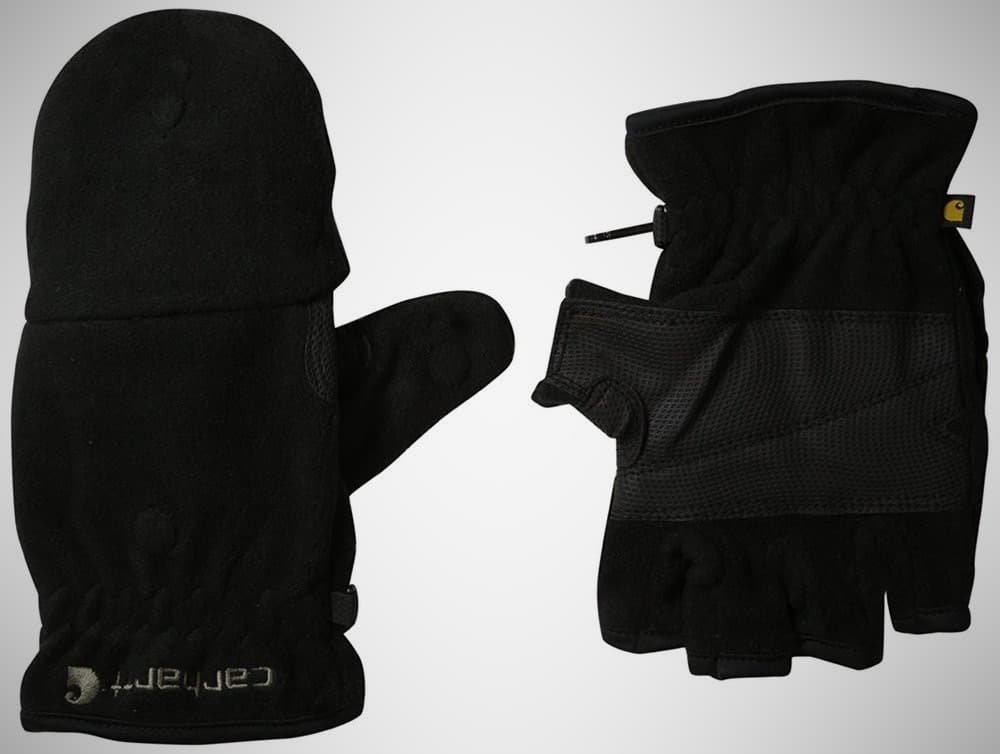
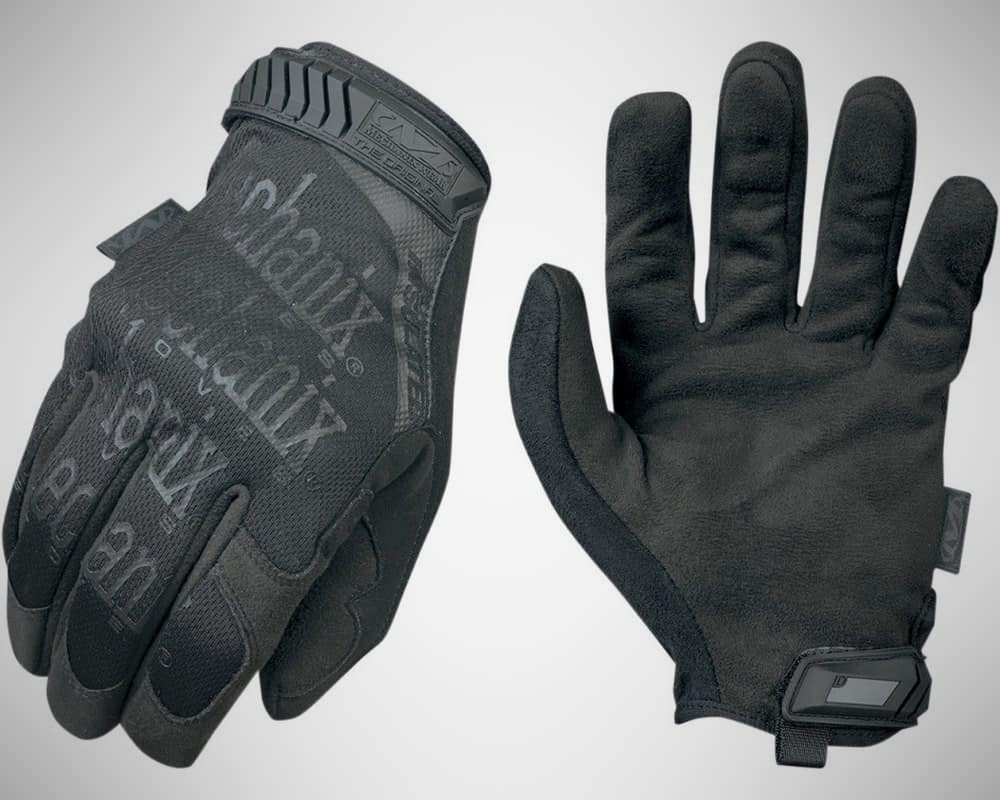
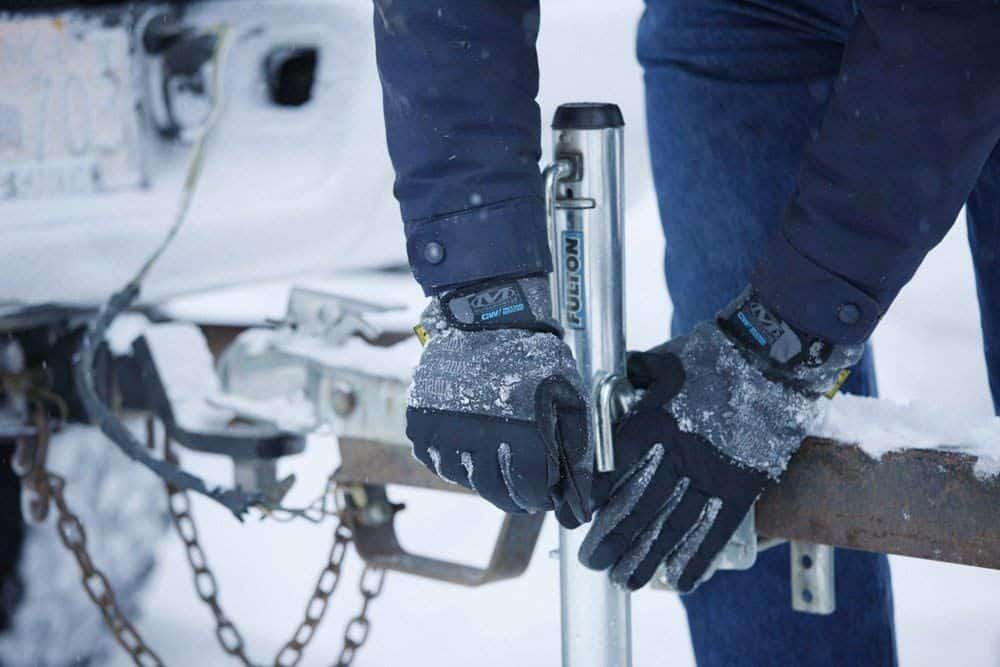
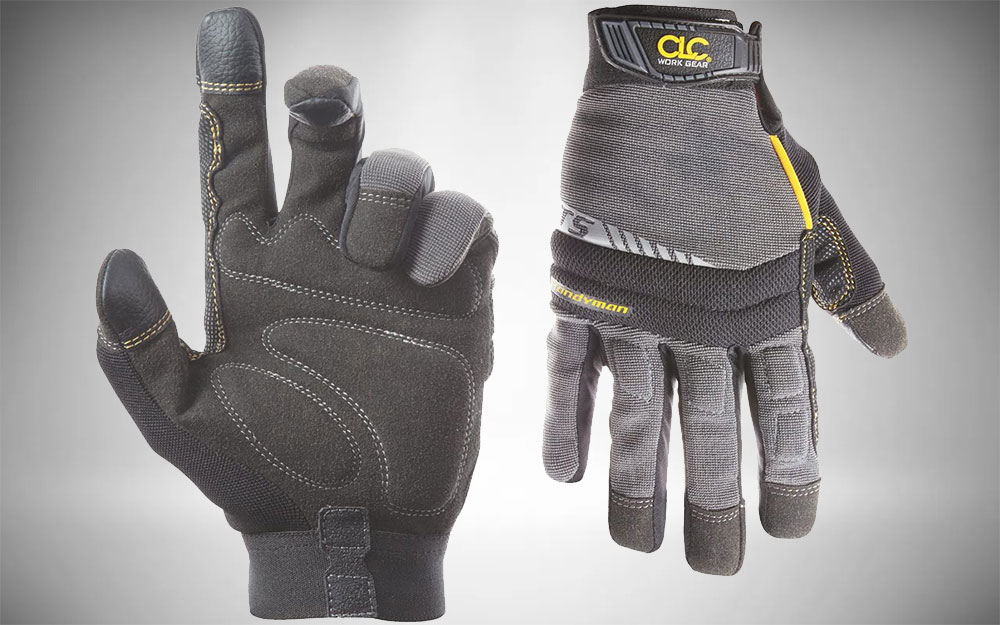
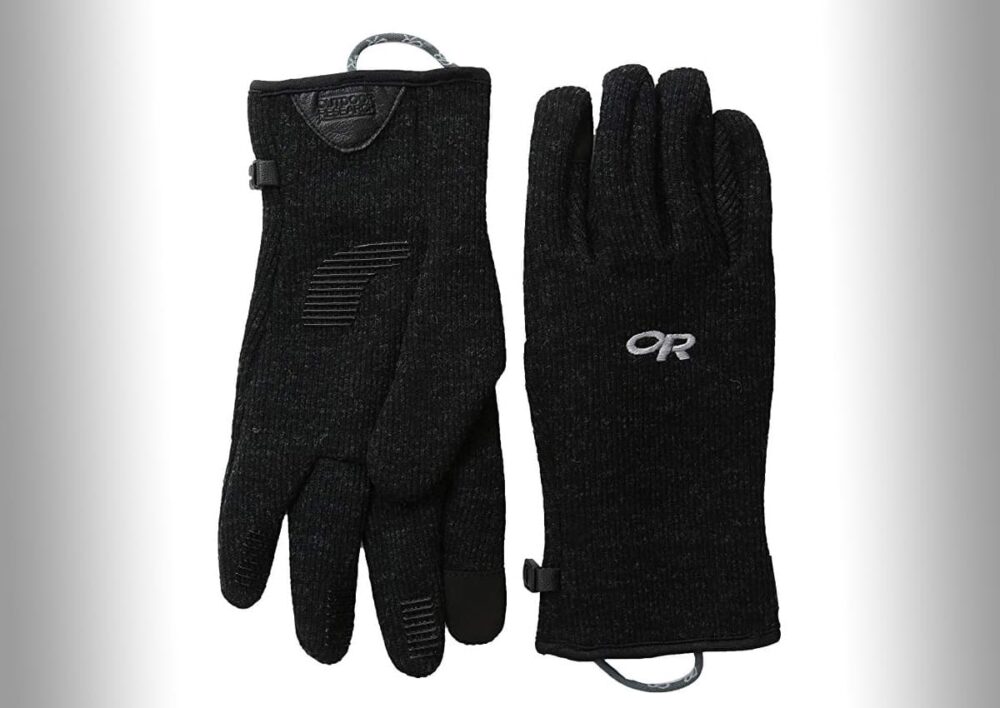
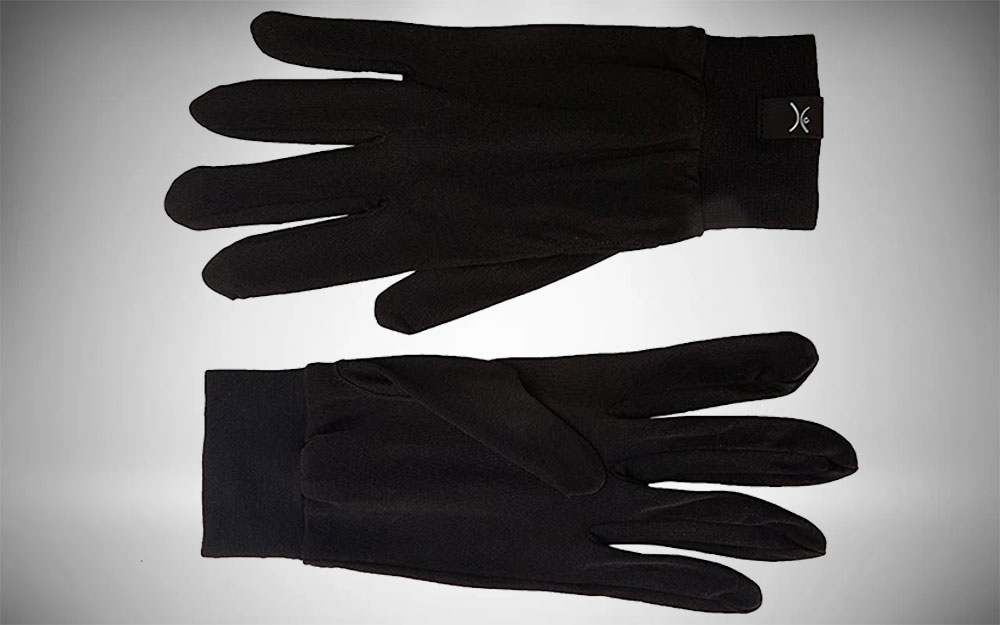
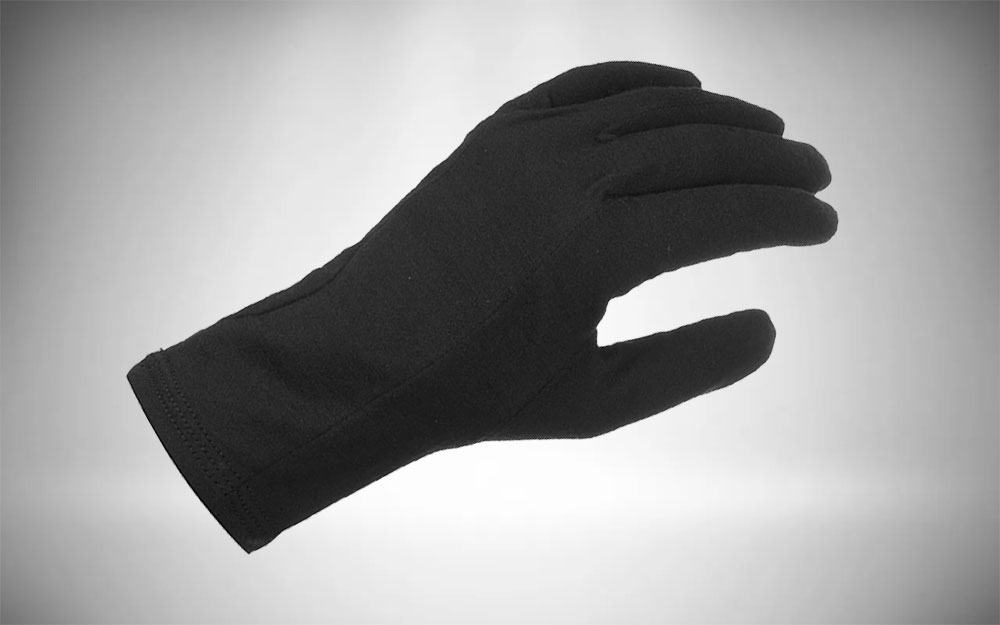
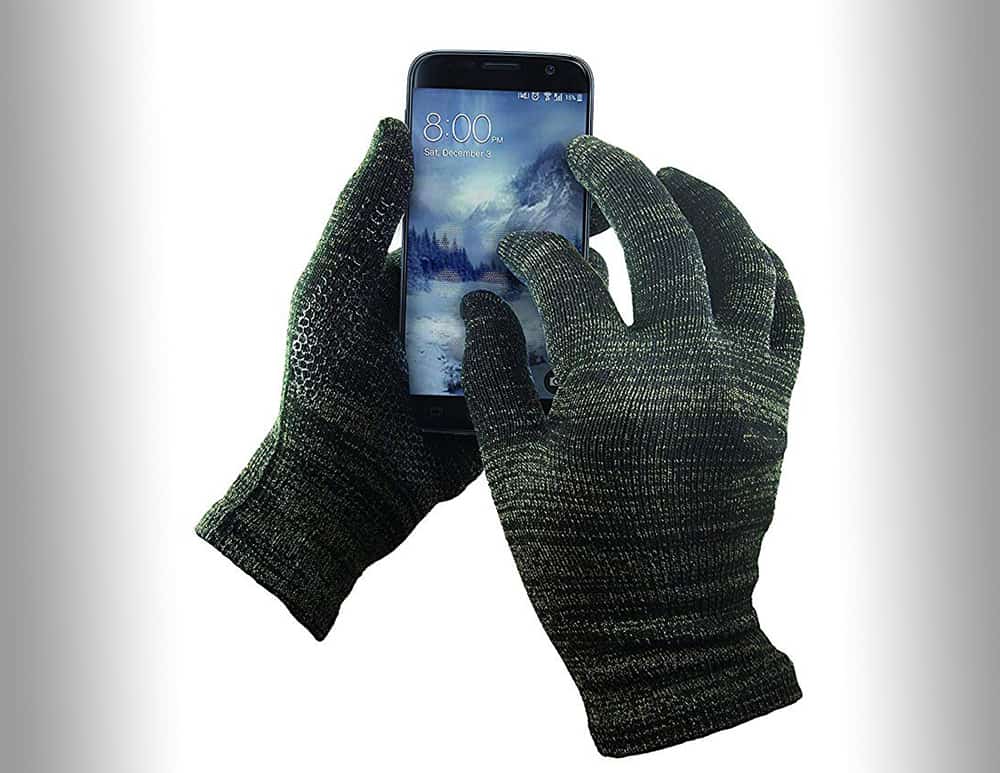
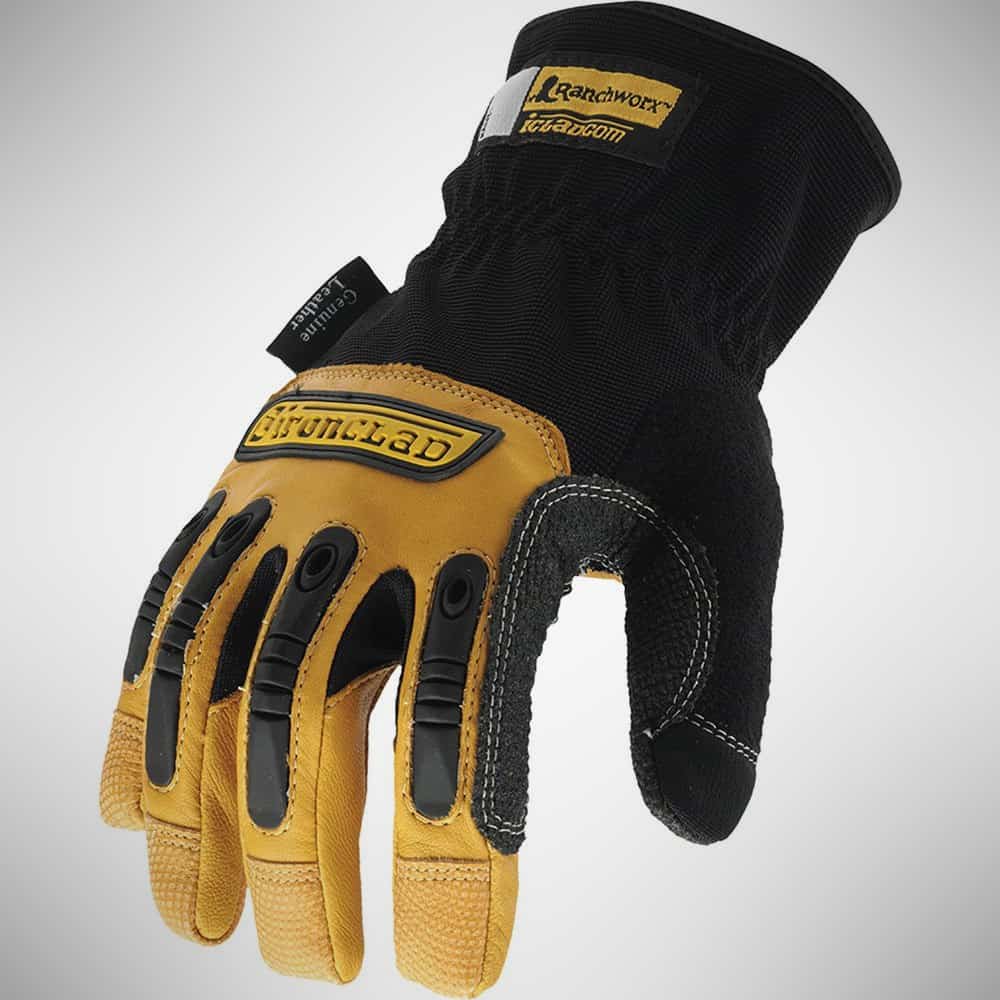
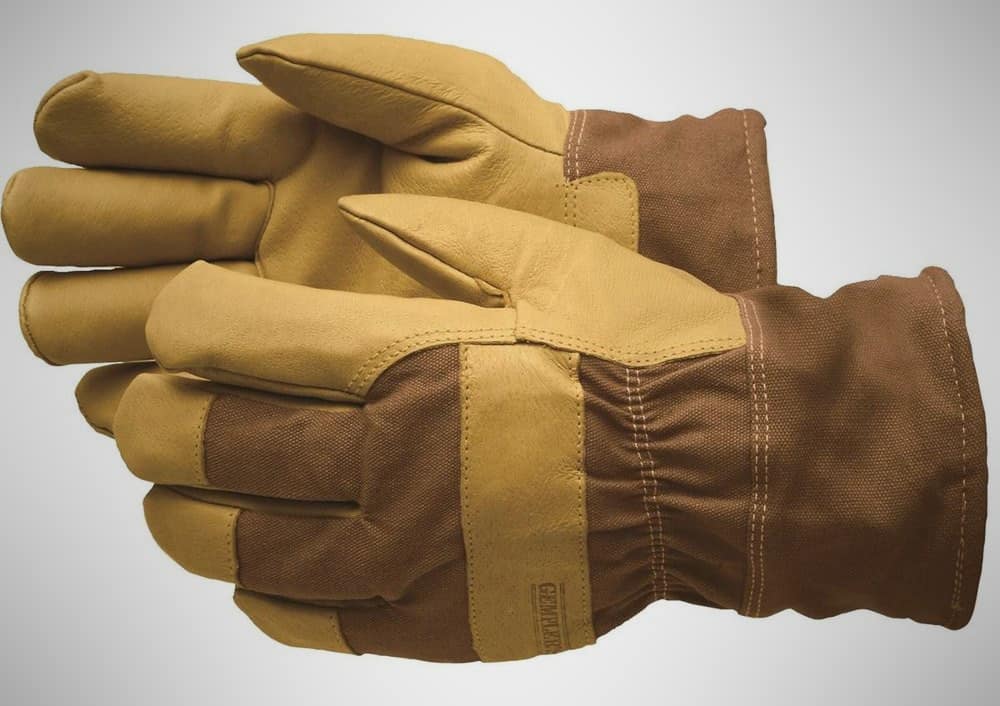
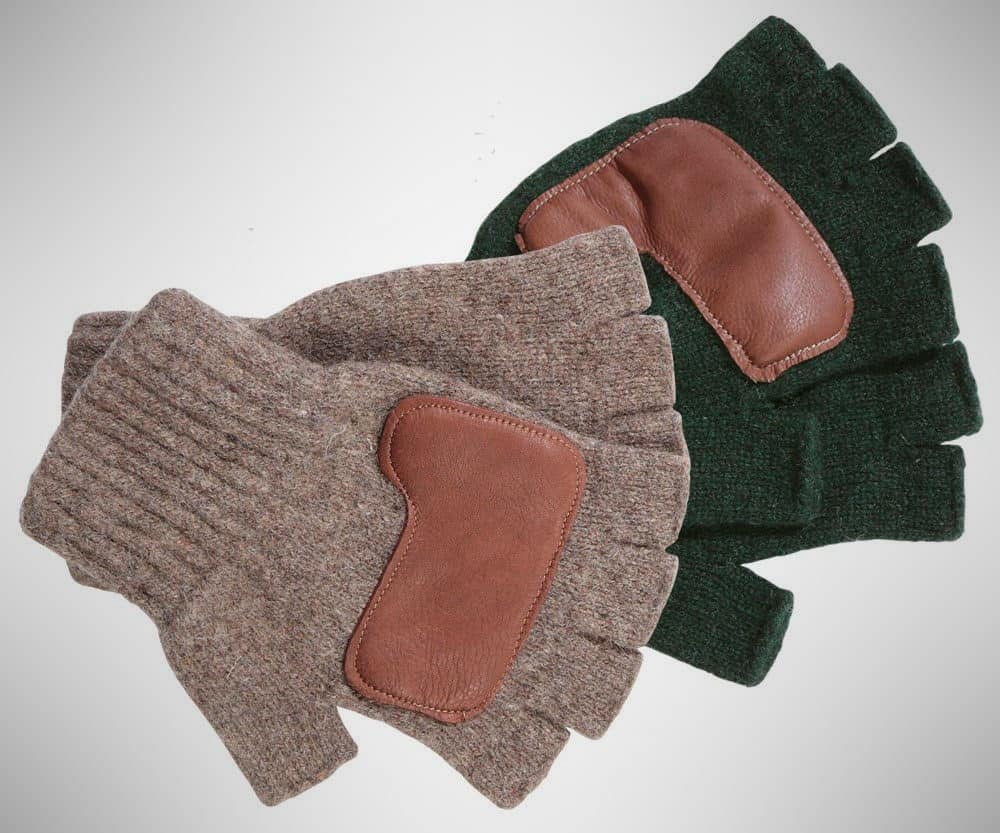
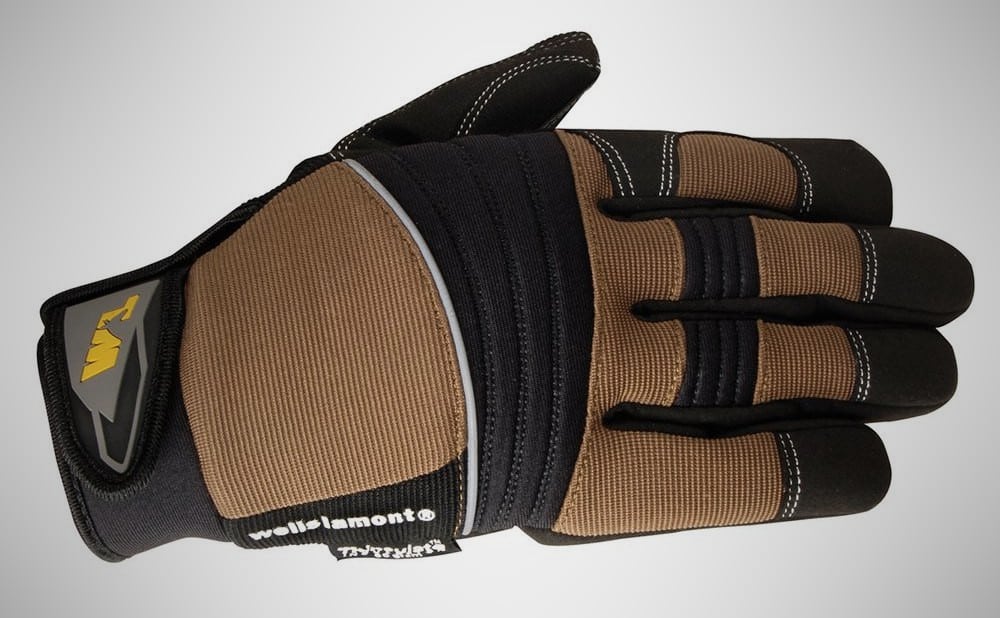
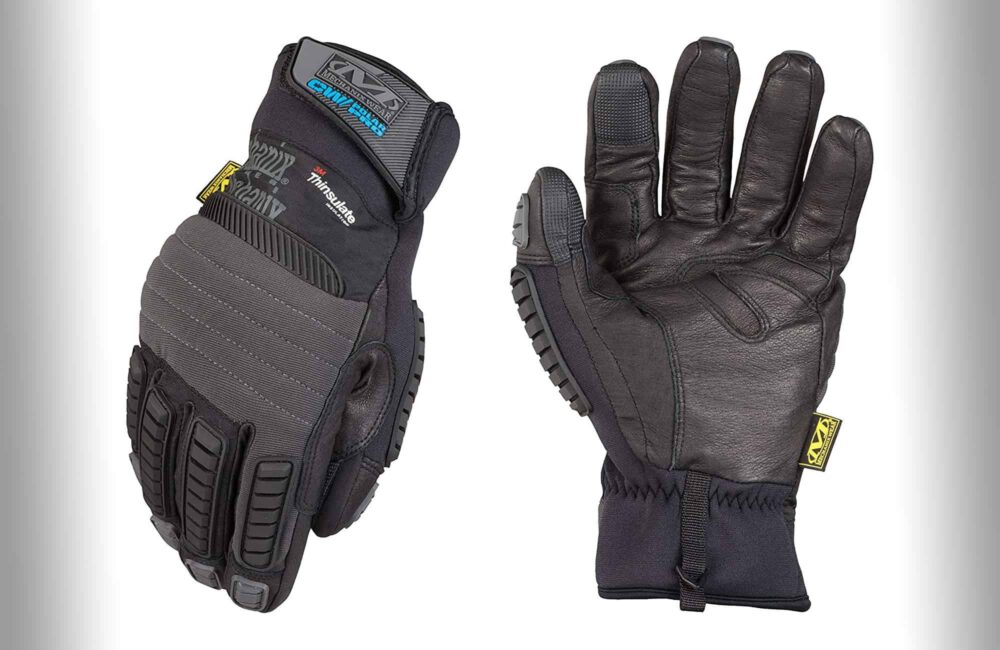
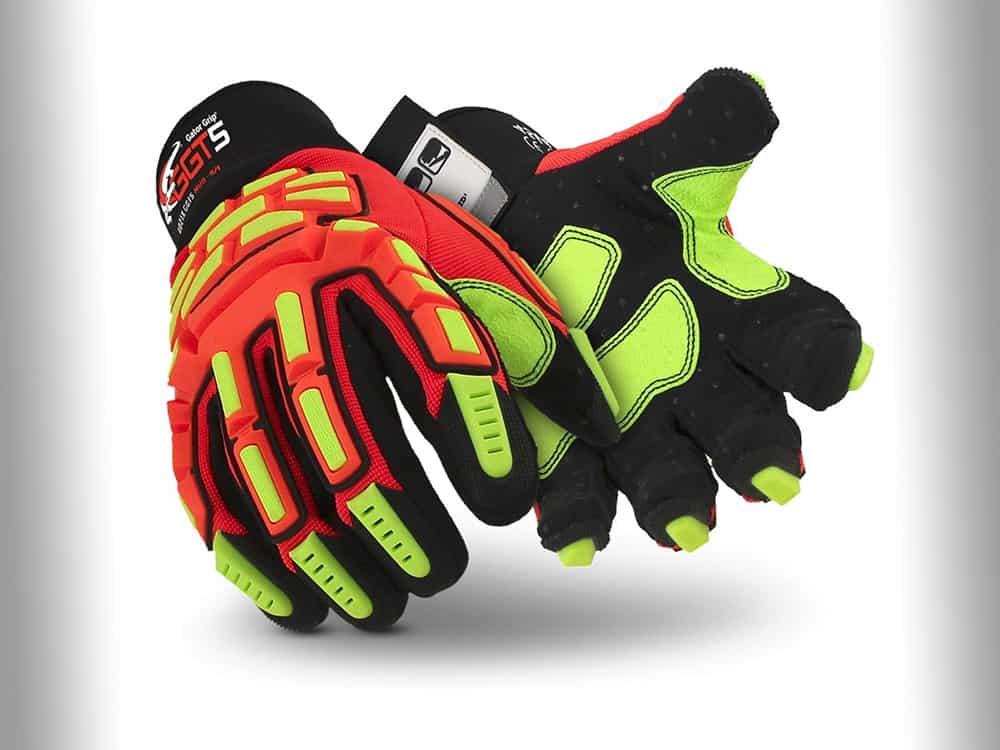
Thank you very much for sharing! I really like your article and its content. It helps me to make the decision to buy a new one for me. I have no reason to stop following your other article because it is worth it.
I bought Carhartt gloves to use on the farm for cleaning. The temperature doesn’t matter after you survive a farm. Animals still must eat and drink, stables must be cleaned, fences must be repaired, etc. The cold isn’t any excuse to skip chores, so find how to handle it. These gloves have kept my hands warm on every occasion I’ve used them.I didn’t soak them in water purposely, but bucket fillers and lightweight rain were never ready to penetrate through the liner. they’re a touch cumbersome for doing motor skills tasks, but that was expected when ordering this kind of glove. big hands and fit well. I wish I had them a see, but they work on my behalf of me as is.
Working in single digit weather to feed horses/llamas makes fleece or wool, or other fabric type gloves a nightmare as it “collects” the hay and you can never get it off of them. I have a suede pair with Thinsulate lining and they work the best so far as there seems to be enough room in the fingertip area to keep my fingers from freezing but no phone touch finger which would be nice to have…
Have used the Chilly Grip brand and it’s good also but not thinsulate lined which would also help.
It’s hard to find the right glove for whatever a person does the most with gloves on in extreme weather conditions… it’s a Purchase $$$, try, use or shelve them process.
Thanks for letting us know Christine. It is a hard find, indeed. Everyone does something different I guess, but we tried to nail down the best ones for whatever “general” work use would mean :)
Thanks so much for sharing! I really like your post because it showed the information about all the best products. This is useful and helps me easier to choose a suitable one for me.
OutdoorEssentials gloves are very light weight and would work best in >45 degree winter climate. I use them under my short-finger biking gloves and remove them as it warms up. Great price for gloves that work well for touch screen uses and fit nicely inside my other winter gloves for added warmth.
I’ve have some of these gloves, and others similar. There is no one pair does it all and never will be. Pull a motor or head in 30 degree temps with 2″ of sleet on the ground has different needs than reassembling the same after you dragged that piece of junk into an unheated garage averaging 45 degrees. Mechanics gloves are suitable in those conditions, keeping in mind they will soak up oil like a sponge, and after a week your hands will get more on them wearing them than from the parts. You have to wash them periodically, and don’t expect any water resistance from the stretch knits. Before mechanics gloves we all wore cheap jersey knits – even in the 1970’s they were from offshore, not Made In America. Japan and Taiwan were predominant, with India trying to break into the market. We bought them cheap and after a few days discarded them. garage owners and franchise shop supervisors had to keep a lid on costs even then.
Leather gloves for dry cold work are pretty common, we used a lot of canvas with no leather reinforcement. Again, avoid water. I have tried neoprene wet suit type gloves, which are actually too compressive, tend to restrict blood flow, and after extended periods pick up a stink that cannot be washed out. Sweat builds up and pew! They aren’t merchandised much except for hunting and fishing now.
I’ve also learned thru years of experience that we often wear too heavy a glove, and it’s mostly for comfort. Same as boots, we struggle to get them on and secure, then find we can’t grip or handle anything – including the expensive hunting rifle we bought. And as the early morning dew rises and the sun comes out, things sometime improve, leaving you with either taking them off to expose your hands to 40’s, or you slip into your OTHER pair of lighter gloves with some grip. I’ve found we have pockets for a reason, and when hunting it’s not quite the tactical exercise I might try to make it. If I can stand the few hours in the early morning I leave the heavy gloves at home.
For the most part synthetics make up modern glove construction, the importers are focusing on retailing the older leather types as their sources are cheaper, and they can play games with labeling. What they call leather from farm raised animals some in America would consider cuddly pets, along with the use of prison labor or forced sweatshops in fabricating them. But – cheap is cheap, and Americans if anything, are cheap. Keep in mind that there are now a host of noxious chemicals we can be exposed to, I have found things like brake fluid will dissolve the bonding adhesive of some leathers and it causes a new pair of mechanic’s gloves to literally dissolve exposing your fingertips. If you are handling automotive chemicals, be aware.
Choose gloves that will keep your hands clean and dry, keeping them warm is still something you have to work at. Long term exposure outdoors in below freezing conditions means not sitting still, not handling high BTU absorbing materials (dont stick your tongue on the flagpole) and knowing you have to layer even your hands for specific sets of conditions. And at a certain point, you simply should not be out there.
Personnaly, i would NEVER buy anything made in Communist China, like kinco and wells lamont. American made for Americans, doggone it!
This is a joke right? I find it hard to believe that any of these reviews, while eloquent and worthy of space in a print mail order catalog, are actually backed by any sort of actual field work. There’s alot of fluff here and no facts.
Have you ever tried to pick up and work with nuts, bolts, screws or really any hardware in pigskin gloves? And who would buy fingerless gloves to go work iron in a lift 40 feet in the air, in subzero temps. No one. This is more of a sales ad than it is a source of honest review and common sense, on the job practical feedback.
Hi Richie, sorry you feel that way.
Not everyone works on nuts and bolts. Not everyone needs fingers precision.
I want to buy Kincos for my husband but are they easy to care and clean?
Yes, they are. Kincos are a great choice, and would make for an amazing gift.